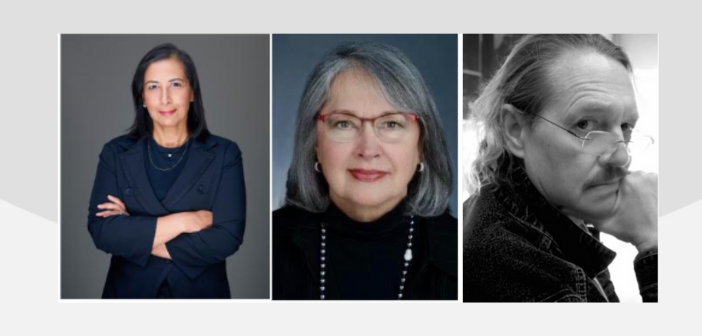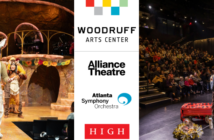Georgia’s music isn’t just a cultural force; it’s a cornerstone of the state’s creative economy. But behind every beat, lyric and loop is a critical engine that often goes unnoticed: intellectual property.
From creation to compensation, understanding IP is essential for artists, producers and entrepreneurs alike. Moderated by Corrine A. Sukiennik, executive director of the Georgia Intellectual Property Alliance (GIPA), this conversation brings together Grammy-winning producer and IP attorney John Snyder and music policy expert Mala Sharma to explore the strategies that protect the sound and drive Georgia’s entertainment future.
How has Georgia’s musical history shaped the current landscape for artists in our state?
Mala: Georgia’s music history is nothing short of iconic. Historically, we’ve been home to a wide range of artists, from Ma Rainey and James Brown to the Allman Brothers, R.E.M., OutKast and Gladys Knight. This rich foundation has created a springboard for a new generation of artists, producers and entrepreneurs.
John: I agree. I can’t think of another state with a more diverse and influential group of artists in all the major genres. Georgia has always been a good place to grow things, and the music industry is no exception. Unlike some other states, there isn’t just one city that serves as a hub for the industry; the entire state grows and cultivates a wide variety of music. Musicians are planted locally and nurtured by the culture of their community. The music then takes root in Georgia and, hopefully, continues to grow until it branches out globally.
This description of the musical landscape in Georgia seems to put a lot of responsibility for expansion on the individual musician. How can musicians succeed in this scenario?
John: By recognizing that they are entrepreneurs. Musicians share all the characteristics of an entrepreneur and have the distinct advantage of creating their own products. They should embrace this fact and not be afraid to go beyond the creative aspects in this role.
Specifically, it’s important for musicians and all creators to understand their rights … the various revenue streams, businesses and legal nuances of what they create, and how to monetize their passions. Creators need aggregators, or publishers who manage the works of multiple creators, so they don’t have to reinvent the wheel but can obtain a clear understanding of their rights and how to leverage and protect their works.
That’s where copyrights come into play. Copyrights protect the “tangible expression” of an idea, not the idea on its own. Under U.S. law, a copyright begins the moment an original work is fixed in tangible form and complete enough to show what it is. Lyrics written down, scribbled on a napkin will do. Sing your song idea into your phone. Now it’s protected as a lyric, possibly a melody and, in fact, a sound recording.
At what point should a musical work receive copyright registration?
While your copyright exists the moment your work is created and fixed in a tangible form, you cannot file a lawsuit for infringement unless it’s registered with the U.S. Copyright Office. Registration turns your rights into legal power.
There are other important reasons to register in a timely manner, such as preserving the ability to claim statutory damages and attorney fees. While some people try to protect their work by mailing it to themselves (the so-called “poor man’s copyright”), this method does not substitute for registration. At best, it may serve as evidence in court, but it does not establish legal copyright protection. To save money, creators can register multiple songs under a single application.
Intellectual property law, such as copyrights, patents and trademarks, provides opportunities that are truly phenomenal, affording meaningful control, recognition and real economic opportunity.
How can artists effectively monetize their music for use in various media and markets through licensing?
Mala: Artists can effectively license their music by understanding the value of their rights and working with platforms, sync agents and music supervisors who place music in film, TV, games and ads. With today’s tools, it’s easier than ever to distribute, track and monetize music globally, key steps toward building a sustainable business in a rapidly evolving landscape.
What key elements should be included in contracts between artists and collaborators to safeguard IP rights?
John: Rights transfers can be complex and often overwhelming. Some contracts can run 50 pages or more. At their core, these agreements specify what rights are being transferred, along with details such as royalty rates, advance payments, contract duration, geographic territory and countless other provisions most haven’t considered.
It’s essential for artists to understand the implications of transferring copyright of their work. Unfortunately, too often these agreements are treated like a routine checkbox, clicking “I agree” without truly understanding what’s at stake. But for artists, the stakes are different. They are the ones granting access, and that access should reflect their vision and values.
In practice, it doesn’t necessarily matter who drafts the contract, as long as the final terms are fair and adequately protect the artist’s interests. Ideally, those terms should be reviewed by an attorney who specializes in copyright and entertainment law.
Mala: This is where advocates and organizations like Georgia Music Partners, the State Bar of Georgia, Georgia Lawyers for the Arts and the Georgia Intellectual Property Alliance can be beneficial to artists. These groups are working to ensure that creators are educated, protected and empowered to maintain ownership over their work. Budding musicians should take full advantage of these resources.
How can educational institutions and professional organizations support artists in undertaking and managing their IP?
John: The tech college system needs to support the IP economy and train its workforce. Middle school and high school courses and curricula concerning music creation and production need to include the legal and business consequences of the activity in their pedagogical approach.
Mala: Educational institutions can empower artists by providing foundational education in intellectual property and emerging tools like name, image and likeness (NIL) rights, efforts we’re already seeing at places like Georgia Tech and UGA. As awareness grows, the future is bright for creators who understand and protect their IP as the core asset of their careers.
Bios:
John Snyder is a distinguished figure in the music industry, renowned for his multifaceted career as a Grammy Award-winning producer, educator and intellectual property lawyer. He’s seamlessly blended his legal expertise with a passion for music, making him a venerable figure in both the legal and music communities. John is the founder of the Artists House Music (artistshousemusic.org) and president of Tweed Recording (https://tweedrecording.com/) along with numerous other notable contributions.
Mala Sharma is president of Georgia Music Partners, the state’s leading nonprofit music advocacy coalition that has played a pivotal role in shaping Georgia’s music economy and policy landscape. Mala also leads Sound Advice & Consulting, a strategic firm serving clients across the creative industries. Her work focuses on building a sustainable, inclusive music ecosystem in Georgia. Her other associations include the Georgia Film, Music & Digital Entertainment Commission, the Atlanta Music Festival Commission and the U.S. Intellectual Property Alliance.
Corrine Sukiennik is executive director of the Georgia Intellectual Property Alliance (GIPA). GIPA is a nonprofit focused on “Empowering intellectual property to advance society®.” For more information about GIPA, contact Corrine.Sukiennik@gaipalliance.org.




